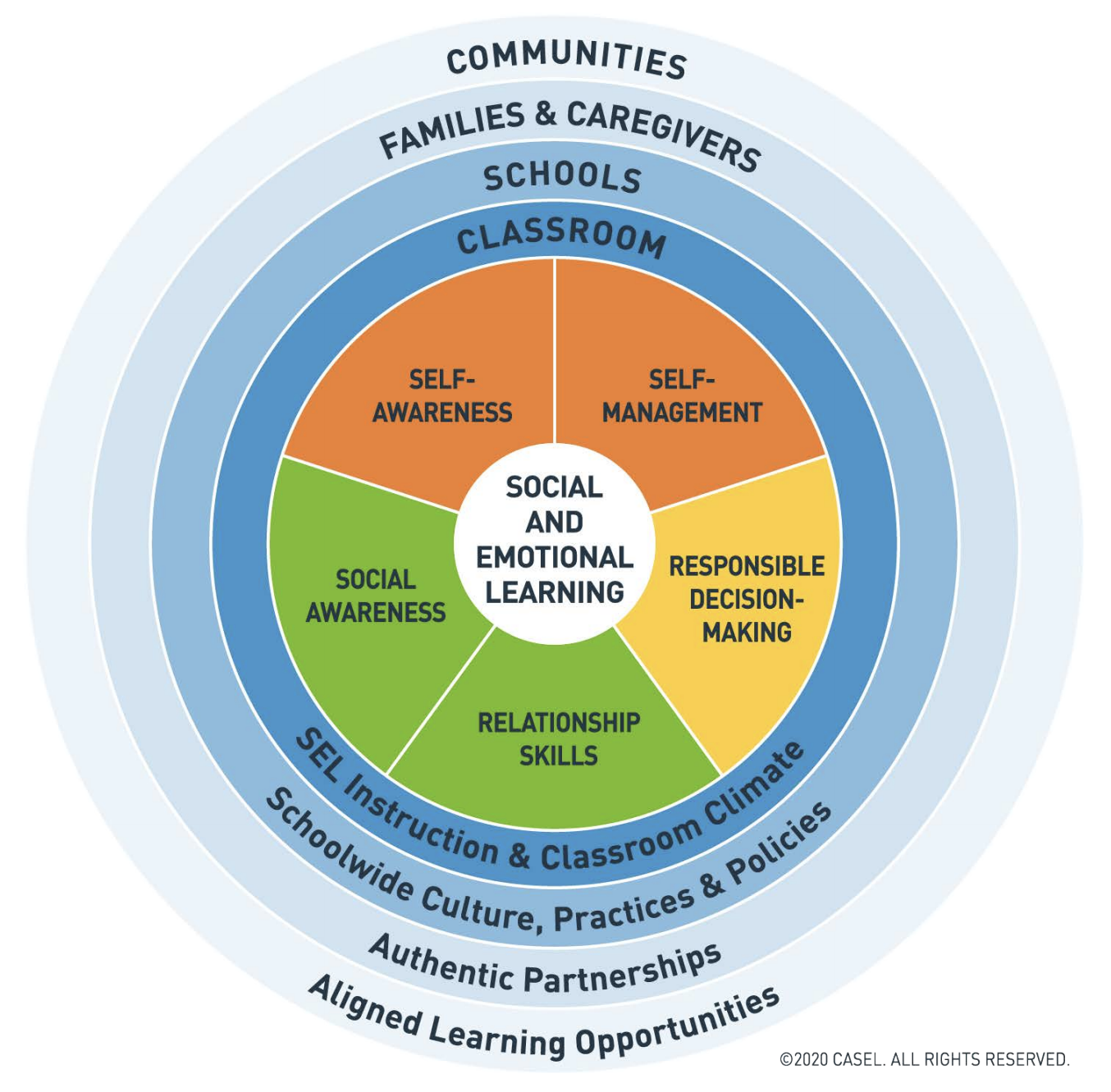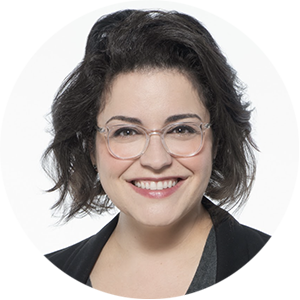Starting with Self: Where SEL and Global Citizenship Intersect
Prior to joining the Meg team, I had experience in both the classroom as well as in the educational curriculum industry. When I was diving into Meg’s very own Going Global coursework, I found myself recognizing parallels between what is addressed in the social and emotional learning (SEL) realms that I had become familiar with over the years and the new-to-me field of global citizenship education (GCEd). Through conversations with colleagues and the broader Global Education community of Clubhouse, I learned that my observations were much more than just a hypothetical hunch.

After a conversation on Clubhouse (hosted by GlobalEd In Schools Club), I had the pleasure of connecting with Krista Leh, Founder of Resonance Education Inc. Not only are the CASEL Core Competencies of SEL related to GCEd, but they are a necessary foundation for more meaningful work in Global Education. When discussing the four competencies for Global Education, Krista notes, “They are rich, and they’re deep and robust and there’s a lot of skills that need to be developed prior to people being able to do those competencies well… A lot of those global skills, we’re not able to do until we broaden our horizons and take off those lenses through which we view the world.”
So where does one begin? Let’s start with self.
“We want this connection, but let’s talk about you first.”

Before examining others and a more global world, we must first recognize our own strengths and perspectives. This is where the work of intrapersonal reflection begins. In CASEL’s core competency of self-awareness, we are encouraged to develop an accurate self-perception as well as recognize our own strengths with confidence. It may be tempting to create activities for students to do in order to achieve the outcome of self-awareness, but we as educators must also take these steps in order to facilitate a more grounded approach to SEL development and GCEd.
It can be tempting to want to dive into the deep end of SEL and GCEd – seeking out a strategy to cure what ails. When asked what schools request as they begin their work with her, Krista states, “They desperately want the interpersonal piece and oftentimes people will say, ‘Just tell me what strategies I need to do to fix this.’… But, as Krista explains, we want this connection, but let’s talk about you first. Let’s build that SEL awareness around who you are and how you see the world… Instead of one more thing that you have to do, let’s look at your own development and how that came to be.”
“There are skills that need to happen before you can be empathetic.”

Now that we have started with self, it’s time to consider the more interpersonal skills we need as we work with others. The CASEL core competency of social awareness is a central piece of GCEd – perspective-taking, empathy, appreciating diversity, and respect for others are the 4 sub-competencies that fall under this umbrella and are themselves found woven throughout the language of the GCEd Framework.
Once we have grown intimately aware of ourselves, our own biases, and values, we can see how these interact with others who are bringing their own selves to the table. We begin to see how we each approach certain topics from the more mundane to the emotionally-charged. But in order to do that, we have to recognize our own strengths before we see the strengths of others. As Krista puts it, “Let’s learn how to partner with people who complement us.”
Effective communication is what builds the relationships we need in order to approach challenges both in the classroom and the world at large. Everyone’s perspective is unique and necessary in the conversations that must take place on our journeys toward action.
“What am I super passionate about that I am willing to take action?”
From reflecting on one’s self to collaborative conversations with others, what’s next?
The hope is that by evaluating and reflecting through an ethical lens with ourselves and others, we are more equipped to recognize our own passions or causes we support and care about. It’s one thing to care, but it’s another thing entirely to be committed to take action. “Compassion,” as Krista puts it, “is caring with action.”
Compassion is more than just a school-wide or district initiative to implement for a school year. It’s more than just a strategy to ‘fix’ the challenges we face. It is an evolving and critical component of long-lasting SEL and GCed development – and the work is never done.
As we come to the close of the 2020/2021 school year here in the U.S., sights are already set on the importance of SEL for next school year. As we pick up the pieces post-pandemic, it’s important to keep our eye toward innovation while also dealing with the immediate needs. How can these conversations around SEL benefit the goals of GCEd and vice versa? How do we create the environmental landscape we want without feeling like it is “one more thing” on the plates of our students, educators, or school leadership?
It all starts with self.
19 May 2021 | Written by Emily Apuzzo Hopkins


